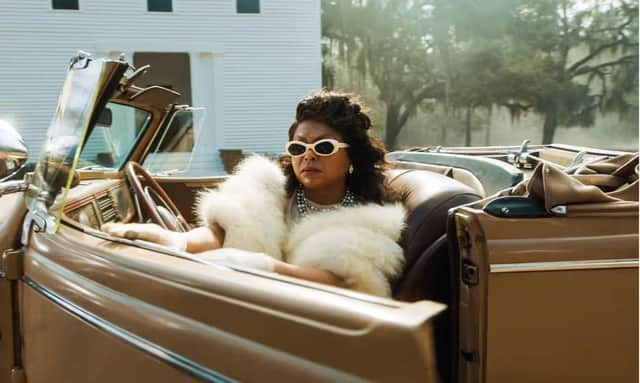Review: The Color Purple – gets there beautifully in the end


With its powerful, beautiful, uplifting ending, Blitz Bazawule’s new, musical version of The Color Purple is a film which certainly gets there in the end. But there are times when it seems an awfully long time getting there.
Spanning nearly 40 years, it’s an epic tale of separation and hope, of evil, cruelty, abuse and manipulation, but also of empowerment and eventual self-worth and self-love. In this new instance, it’s more the 2005 Broadway musical we get than the 1985 Steven Spielberg movie; and that’s both its glory and its drawback.
Advertisement
Hide AdAdvertisement
Hide AdSome of the songs are great; plenty aren’t; and with so many of the ladies hovering forever on the edge of breaking into song, it’s a film which inevitably holds itself back. The first hour at least seems just a bit laboured at times – despite an intrigue which is otherwise building nicely. The problem is that the songs stop the film rather than giving it momentum; they are great at times and at times certainly spectacular, invariably beautifully choregraphed, but too often they take just a bit more than they give, double-underlining unnecessarily and stalling everything. They just don’t quite have the integration they need. Which is a shame.
It’s a brutal story. Sisters Celie (Fantasia Barrino in the part played by Whoopi Goldberg in the first film) and Nettie (Halle Bailey) are brought up by a callous abusive father. Celie’s children – the result of rape – are given away and then she too is given away to the ghastly “Mister” Johnson (Colman Domingo) who treats her as his slave and humiliates her at every turn.
When Nettie seeks sanctuary with them, after their father has turned his attentions on her, it’s not long before Mister throws her out – the start of decades of separation for Celie and Nettie.
The first half of the film then becomes about wondering just how and if and when Celie might find the strength to fight back. With the songs often intrusive, it’s an opening hour and a half which often seems to be going nowhere in particular very slowly, building atmosphere for sure but not doing an awful lot with it.
Advertisement
Hide AdAdvertisement
Hide AdBut then we get, within minutes, an act of violence and a quite preposterous coincidence. Between them they spark the film to life for a much, much stronger final 50 minutes. The impression remains that there is self-indulgence in the movie-making, but it pulls itself together to end strongly – and you certainly find yourself rooting for Celie as she finally finds her voice and equally finds her vocation. And there is redemption elsewhere too – with an act of kindness from an unexpected, unspokenly repentant quarter, all leading the kind of ending which certainly stays with you.
It's a terrific performance from Fantasia Barrino as Celie, for so long so downtrodden and seemingly broken before learning to live and to value herself. We’ve had all the fuss about Barbie not getting the leading actress Oscar nod. More remarkable is that Barrino wasn’t included either. But you wouldn’t argue with Danielle Brooks’ inclusion in the best supporting actress nominations – a crucial role, the spirited Sofia who ultimately shows Celie the way.